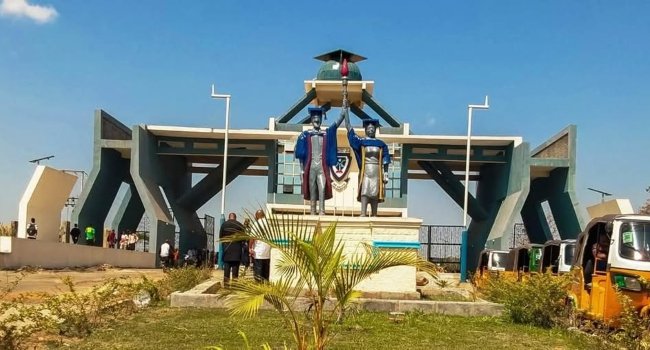The University of Lagos has lost 239 first-class graduates employed as lecturers between 2015 and 2022.
Only 17 remain as of October 2023.
This revelation came from Prof. Oluwatoyin Ogundipe, the immediate past Vice-Chancellor, during The Punch Forum held on August 26.
He blamed the mass exit on poor salaries, lack of motivation, and worsening working conditions.
“Many of us are tired. By the time you get home, there is no light, and the Federal Government is saying they are giving us ₦10m to access as loans. You can see how our lives have been devalued. Can I use ₦10m to build a security post?” he asked.
Funding Crisis and Brain Drain
Ogundipe warned that Nigeria’s education sector is sinking under chronic underfunding.
Federal and state allocations have remained below 10% of the national budget, far short of UNESCO’s 15–26% recommendation.
“The consequences of chronic underfunding are immediate and profound: Nigeria has the highest number of out-of-school children worldwide, estimated at between 10 and 22 million,” he said.
He added that over 60% of primary education funding goes to salaries, leaving little for infrastructure or innovation.
“At UNILAG, we decided that those with first-class honours should be employed. What is remaining is not up to 10%. All of them have gone,” Ogundipe said.
“In 2015, 86 were employed; in 2016, 82; during my time, that is, 2017 to 2022, 88 were employed. As of October 2023, only 17 were on the ground. They have gone.”
He warned that if nothing changes, Nigerian universities may soon be dominated by women, with poorly prepared candidates flooding postgraduate programmes.
Call for Innovative Solutions
Ogundipe proposed new funding models to save the system.
He called for public-private partnerships, alumni endowments, education bonds, and tech-driven investments.
“UNESCO positions innovative financing as a critical tool for bridging the nearly $100bn annual financing gap impeding educational attainment in low- and lower-middle-income countries,” he said.
“The private sector should see education support not just as social responsibility but as enlightened self-interest in building the workforce, the talent, and the markets of tomorrow.”
He urged alumni to give back through donations, mentorship, and research support.
He also called on civil society, faith-based groups, and the media to keep pressure on the government.
Rate, Like 👍, Comment💬, share this article, and join us on our social media handles. You can also Submit your own story to get featured and earn rewards!







